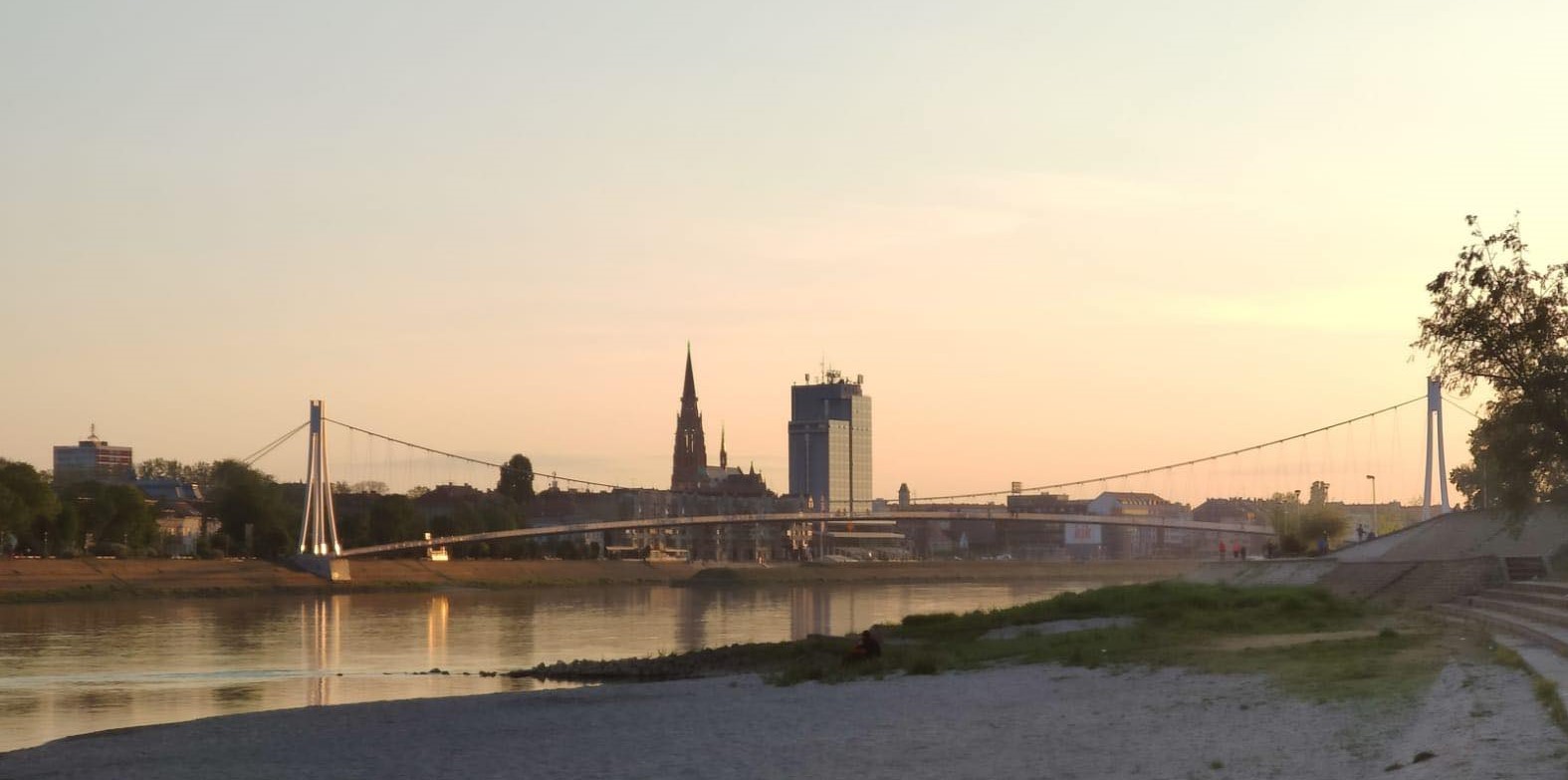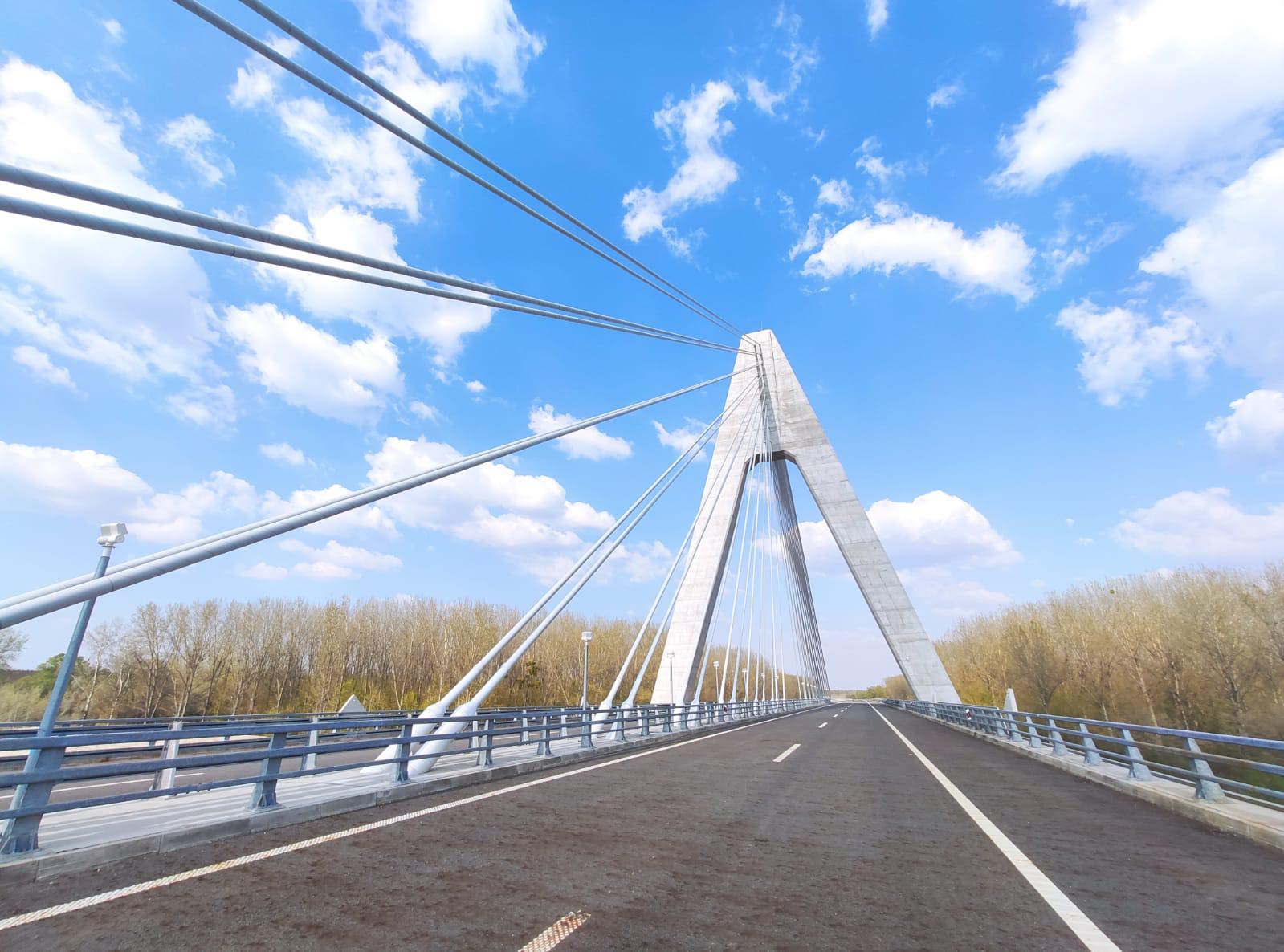February 28, 2021 – A very positive and optimistic view in the Croatian Graduate Perspective series comes from Rebeka in Osijek. "In Slavonia, where I come from, the number of those leaving has greatly increased in the last couple of years. So maybe if we invest more in our own communities to improve opportunities there, especially rural ones, we could give our young people a chance for growth and prosperity here," says Rebeka. This is her story.
With many young people emigrating from Croatia, what keeps those who decided to stay (at least for now)?
The emigration of young people from Croatia in search of better business opportunities and living standards, unfortunately, is a well-known story. Each of us young people in Croatia knows at least a few people from their environment who, at one point, said that enough was enough and decided to seek happiness somewhere abroad.
According to official Eurostat data, from 2015 to 2019, Croatia's population decreased by 4.26 inhabitants per 1,000 citizens only thanks to emigration. Therefore, the Croatian emigration rate is the second-worst in the European Union (after Lithuania).
These data indicate that economic prosperity influences population decisions to emigrate. Besides, due to the exodus of the young and working population, there is an additional reduction in GDP per capita that closes the cycle of poverty and decline in Croatia.
However, there are many who are aware of the poor position of young people in Croatia but still do not want to give up and decide to stay in Croatia. We're wondering what do those young people, recent graduates, think about this whole situation and what are their reasons for staying in Croatia.
We continue our series with Rebeka from Osijek in eastern Croatia.
First of all, please introduce yourself. What are you studying/what did you study? Do you have a job currently?
Hello! My name is Rebeka, and I am currently studying for my master's degree in Social Work at the University of Zagreb. I have several student jobs, where I work occasionally. One of them, where I work most of the time, is a shelter for children and adults, domestic violence victims.
What is it like being a student/recent graduate in Croatia during this coronavirus time?
Well, I plan to graduate in July or September, depending on the coronavirus situation, which includes my plans for this summer. I know some of my colleagues who graduated in 2020 still haven't found jobs. So, to be honest, although I'm looking forward to graduating and finally start to work in my profession, it's going to be challenging, especially at this time. But I believe that if you try hard enough and are persistent and patient, something will eventually come up.

Osijek / Hrvoje Dumančić
What are your experiences searching for a job in your profession in Croatia?
As a student, you can't really work as a social worker. So, I don't have experience with this yet.
What do you think of the Croatian Government's efforts to provide opportunities for graduates?
It is important to educate students about their abilities after they complete their studies. Knowing that graduates will play a significant role in economic recovery, I think that greater support of the Croatian Government should be given to recent graduates who will now enter the labor market due to coronavirus, where there are fewer job opportunities and increased competition.
Many young people your age decide to emigrate from Croatia to find a better job opportunity and/or life standard. What do you think about it?
As a result of our economy's situation, I think that young people lack safety and stability here in Croatia, and those two are essential components of one's life. Also, young intellectuals are looking to expand their knowledge and experiences further and find a variety of possibilities for improvements, whether in professional or personal life. In the end, I think everyone chooses what they consider the best option for themselves in that given moment.

Rebeka in Kopački Rit Nature Park
In your opinion, what would encourage young people to stay in Croatia?
It is excellent that the EU's current emigration dynamic gives us opportunities for free flow in Europe, but on the other hand, our hometowns and communities are left empty. For example, in Slavonia, where I come from, the number of those leaving has greatly increased in the last couple of years. So, in my opinion, maybe if we invest more in our own communities to improve opportunities there, especially rural ones, we could give our young people a chance for growth and prosperity here.
Have you ever considered moving out of Croatia and why?
I would be lying if I said I haven't. Although I would love to stay here in Croatia for now, I also try to be open to life and new experiences to see what the future will bring.
As a recent graduate, what is your impression of the education system in Croatia? What do you think is good about it and what could be better?
I think that our educational system develops a highly skilled workforce that can compete globally. Since primary school, we learn very extensively about various subjects. In my opinion, we should increase optional subjects and reduce compulsory subjects. Great emphasis is also placed on memorizing facts that should be diminished, and we should engage more problem-solving tasks and increase the ability to learn in practice.
Based on your own experience, can you say that everything is possible in Croatia if you work hard, work on yourself, are educated and ambitious?
I haven't had a bad experience with this one, so I believe yes! Of course, I think that politics is largely involved, but that's another story.
If you could change only one thing in Croatia, what would it be, and why do you think it's important?
Awareness of the beauty we have in front of our eyes, and to learn to cherish it.

As a young Croatian, what are you most proud of in Croatia?
A lot of things! We have so much natural richness in the country – beautiful national parks, mountains, fields, sea, fantastic food and warm people, and by far the best fans when it comes to sports. We are an exceptional nation, always quarreling and arguing. Everyone is against everyone, but when a crisis occurs, we are all there together, united, and always ready to help.
Are you optimistic or pessimistic about the future of Croatia, and will it be a better or worse place for your children?
I would say that I am an optimist, and I like to look at things realistically, as they are, with a dose of optimism. Many things are out of my control, but I know that what is in my power is that I can give my best to become a great social worker one day and, what is more important, a great human being.
And as Viktor Frankl once said, we are those who were being questioned by life – daily and hourly. At every given moment, we have the power to make decisions that will lead us to a better future for ourselves and our children. I think that every time has its good and bad things. We just need to find the good ones to focus on because bad things will always happen – it is just a matter of our perspective.

Osijek / Hrvoje Dumančić
Are you a student or recent graduate who would like to contribute your voice and experiences to this series? If yes, please contact This email address is being protected from spambots. You need JavaScript enabled to view it. with the subject "Graduate."
To read more from the Croatian Graduate Perspective series, follow TCN's dedicated page.


